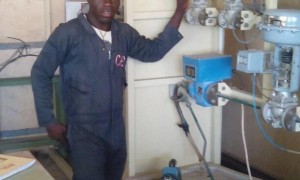Contrary to and in direct contrast to the wishes of a large number of Nigerians, especially the masses, the new year that was suppose to usher in a new horizon of hope and actualization of pleasant expectations has so far been a year that has been notorious for the seemingly unbearable inflation crises that has so far gone out of hand.
Let’s even assume that a rise in prices of goods and services is not unusual, and that they are a direct response to global economic realities as well as the realities of local economies, the spiraling nature of the present Nigerian situation is a bit awkward with a very tough impact on the masses.
When one imagine the rate at which prices of goods rises almost everyday, one would want to believe that the economic situation of the country has gone out of hand and even beyond control of those saddled with the responsibility of coordinating the economy of the country.
Like I have alluded in one of my previous articles, it seems to me that the Nigerian economic situation has defied all known economy principles, laws, theories, conventions, practices, and trajectory. The Nigerian economy seems to be at the whims and caprices of certain saboteurs whom hopefully the government would be able to fish out soonest .
Looking closely at the recent hike in the prices of commodities like cement and even household materials that doesn’t even fall within the bracket of luxurious characterization, one can only imagine what manner of hardship the common man would have to endure at this present moment.
In a country that has been said to be dealing with crass poverty, we cannot pretend as if all is well in the face of rising prices of commodities, goods, and services. To put in proper perspective, a study by the World bank opined that “Nigeria’s poverty rate rose from 40% in 2018 to 46% in 2023 as the number of poor people rose from 79million to 104 million in 2023.”
The above fact and figure represents a dangerous and ugly trend in our national life, indicating that almost half of our population suffers from the grip of multidimensional poverty. With more expected to fall into the poverty bracket, one can only imagine if the middle class won’t cease to exist in the Nigerian context.
As a matter of fact, there is no gain-saying the fact that the problem that presently confronts us as a nation is as a result of the Naira float policy and the fuel subsidy removal. The Naira float policy has seen the Naira perform abysmally against the dollar while the fuel subsidy removal has occasion a serious hike in commodity prices.
As much as the ideas are noble, one thing that is missing is the clear lack of strategic planning and implementation of the said policies and ideas. What could have been a drastic change in the economic development of the country has now become an albatross for its people, especially the less privileged and the poor masses.
As a matter of conclusion, the government is hereby implored to look into the present situation with a view to ensuring that the economy is redirected towards the path of sustainability and not quick fixes for a problem that has hitherto resulted into hopelessness and further occasioned a degeneration of the poverty problem we face as a nation.
We look forward to see how the government would transform Nigerian into a producing nation and not a consuming nation that we have been. We must also continue to look into how to occasion a stimulation of the economy by ensuring that we promote local industries to produce quality goods that can act as a close substitute to foreign ones and ease the burden on our foreign reserves.
Lest the common man dies of hunger and untold hardship, the government must rise to the occasion by stemming the tide of rising commodity prices and worsening inflationary trend, so that the poor can at least breathe.
































